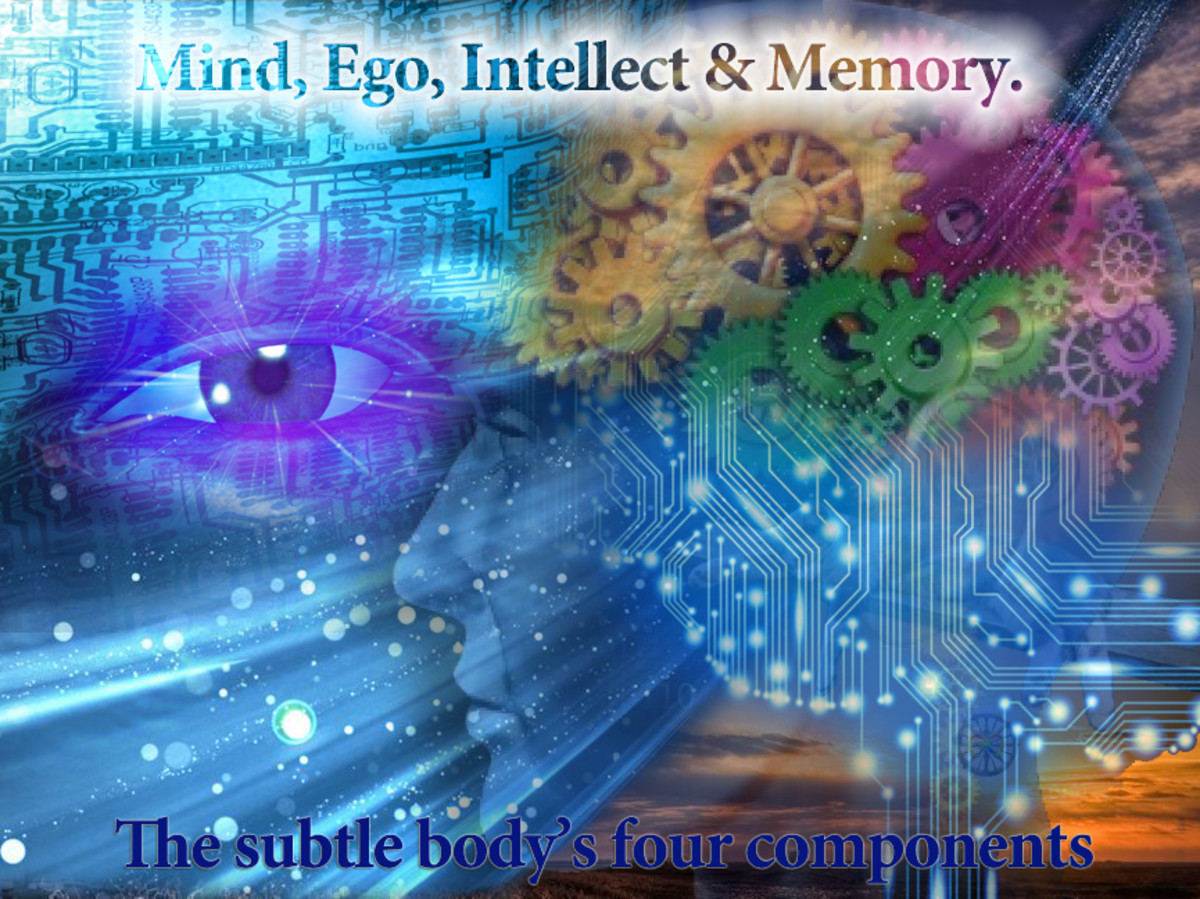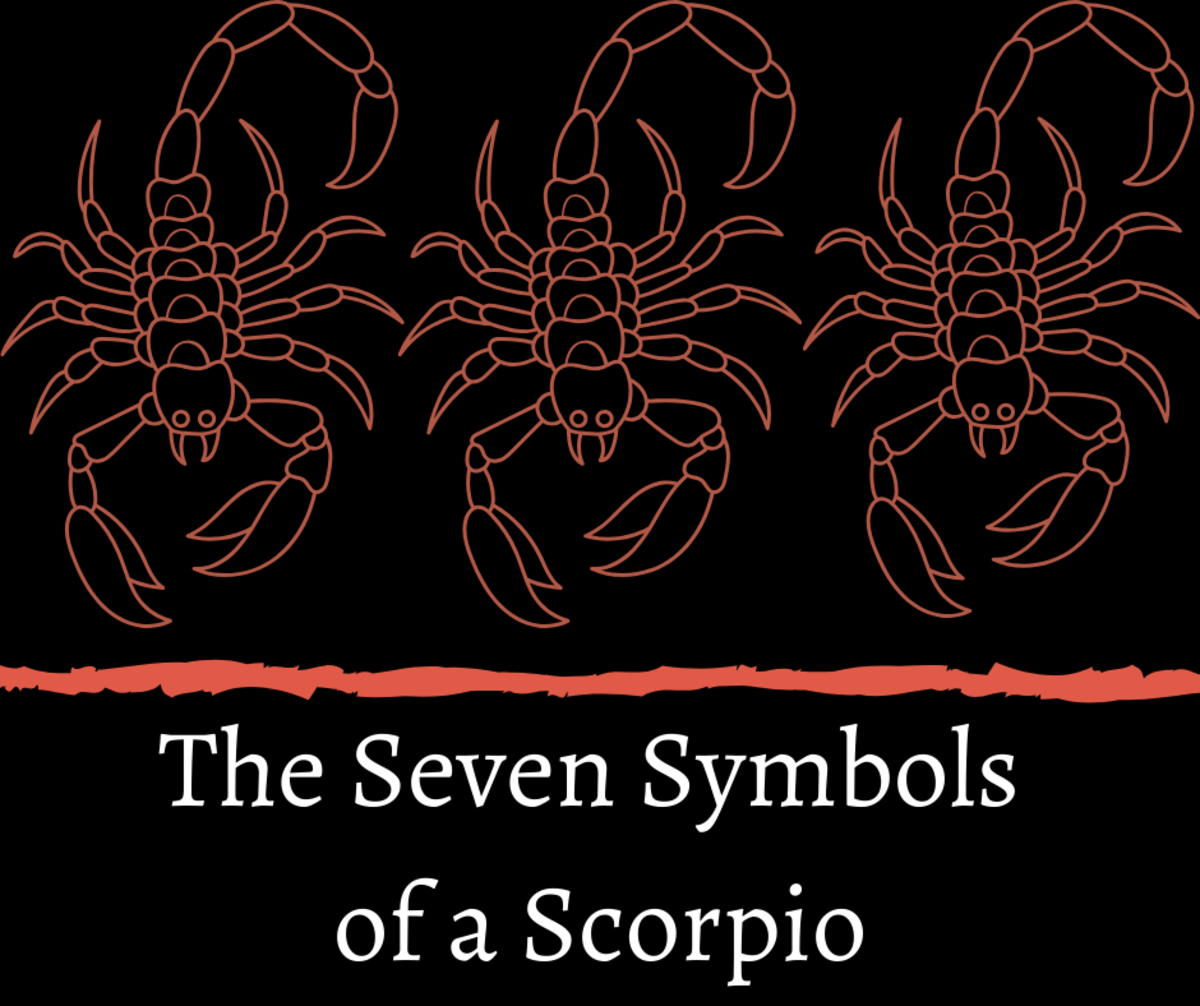Are You Unique? (Nothing but Our Memories)
![Illustration from the Utriusque Cosmi[...] by Robert Fludd (ca. 1617); courtesy of Wikimedia Commons. Work is in the public domain. Illustration from the Utriusque Cosmi[...] by Robert Fludd (ca. 1617); courtesy of Wikimedia Commons. Work is in the public domain.](https://usercontent2.hubstatic.com/14688803_f520.jpg)
What Am I?
What makes us human? Are humans unique? Am I, as an individual, unique? Important questions that I will attempt to wade through. This is mostly a philosophical discussion buttressed by science. Of course these questions call out for a religious or spiritual perspective, but that is not the purpose of this discussion.
Body, mind and soul: perhaps the three essential elements of humanity. Of course all life has a body for it exists in the universe subject to the laws of physics. Religion or spirituality provides the answer to the soul, if you want. Whether the soul can be tested as a scientific principle is a matter of poor debate, but it is irrelevant in regards to belief. Though, it is the mind that perhaps bridges the concepts of the corporal and spiritual.
Of the Mind
The mind exists as a matter of scientific inquiry, but understanding it, is another matter.1 The mind can be thought of as a function of the brain: an organ that serves as the central hub of the nervous system that interprets internal and external conditions and then animates the body of an organism in response. Not all life has a brain or even a nervous system.2 Therefore, if the mind is a projection of a brain, then only those creatures with a brain can be said to have a mind; and further, the mind then must be a product of evolution.
Another way to understand the mind is in terms of conscious. In other words the mind is conscious thought. This concept can be problematic in certain ways, for example how do you test consciousness in human development or other creatures. Still it is useful in understanding individuality, rationality and creativity. It is easy to state that one can understand nature by meticulously studying it and following the scientific method. But, how Albert Einstein derived his Theory of Relativity, for example, is not evident or apparent through observation and instead requires some creativity.3
The mind can therefore be thought of as encompassing two parts: a rational and a creative element. The old notion of the two hemispheres of the brain being split between analytical and creative is probably not precisely true, but is within this same vein.4
Dreams to the Unknown
There are levels of consciousness; I will divide into the following categories, purely for illustrative purposes: highly alert, mostly alert but generally focused on a task, mostly not alert as absorbed in a task, not alert as in day-dreaming but with some control on the dream, mostly unconscious as in sleeping, and finally unconscious. And then there are levels of unconsciousness.5 But, as far as application of the mind, anything beyond sleep is where the mind no longer seems to play a role. In sleep the mind dreams, indicating the mind is still active in some regard.6 But, can we say we are in any way conscious when dreaming? Probably not. But, the mind still exists in sleep yet we lose consciousness. So, there is more to the mind than merely being an aspect of the conscious brain.
Most complex life sleeps, but what biological function it serves is not exactly understood.7 One theory is that it serves to organize memory, or at least that is part of the function. Memory and mind of course are intertwined. Yet, many creatures can be said to have memory, but it is debatable if they truly have a mind. It is not hard to imagine how memory could be an evolutionary advantage.8
The Learning Game
Learning is a natural outcome of memory and by learning a creature improves its chances of successfully doing whatever it is trying to accomplish. Perhaps the mind is an advanced means of the learning process. Rationality, as I will use the term, is an inherent understanding of logical progression or an understanding of the laws of nature; in other words a rudimentary understanding of physics. Though, rudimentary is key, bias and imperfect understanding will inevitably exist. Creativity on the other hand, imagines beyond what is known and tested and therefore opens possibilities that can overcome problems in new ways.
The Mind Plans
If memory serves to help us learn and the mind provides the tools to understand memory, then applying it towards improving our chances of success in a particular task is probably the evolutionary basis. Therefore, the mind can be seen as a planning tool. Regardless of how conscious and unconscious thought interact; if the mind is the central planner, using memory and the tools of rational and creative thought, then it follows that the conscious mind is ultimately what controls the brain. Notwithstanding periods when a immediate threat requires a viscerally instinctive reaction (i.e. flight, fight or freeze responses); or other omnipresent instinctual impulses that compete for our attention.
This is of course is the human mind. Is this circumstance the same for other animals? Possibly to a lesser degree. Instincts are still mostly in control, but the ability to learn indicates that there is a mind that can plan ahead and therefore can control or at least nudge instincts.
The Individual: Mind Over Matter
Buddhism and Quantum Field Theory aside, every creature is of course an individual. In a way evolution requires individuality to exist in order to facilitate change. But, individuality in this sense is genetic or experienced. Mutations cause differences in instinctual behavior or physical attributes that either enhance a creature's ability to survive and thrive or die, given the environmental conditions. 9
Individuality than is an outcome of an inherently random universe. Each individual creature is of course unique, if by nothing more than genetically or by experience, but are unable to manifest what makes them unique on their own terms; they just are different, but not by choice.
However, if a mind is able to control or modify behavior then outcomes, not connected just to random mutations, but derived from an individual's experience and processed with the tools of rationality and creativity can create true individuals. Individuals, in other words, can manifest unique actions through their own volition. Granted instincts still form a large part of anyone's actions or behavior. But, the ability to modify behavioral instincts is the power of the mind.
In Memoriam
The individual then can be defined as a product of a mind; and the mind is a processor of memory. Therefore it can be said that memory makes the mind. Without memory can we really have a mind? Let's think about this with a thought experiment: if you were to die, but in the few minutes when your brain is still functioning a transfer of all your memories occurs and are downloaded into a robot, or a clone, or a simulation, then when the receiver of memories awakes, is it you? Do you awake? It's an interesting questions and I don't have an answer. This scenario is a common trope in science fiction, but it pulls at what exactly makes us up as individuals.
Of course if you believe in a soul then the answer becomes clearer, perhaps. Take the opposite approach: if you were to wake up after a period of unconsciousness, say after being asleep, with all your memories forever gone, are you the same person? Same body, but tabula rasa. Are you a different person, with a different soul? Another science fiction trope, but interesting.
The Chicken or the Egg
If memory and genetics makes us who we are, but memory alone making us a true individual, then processing memory is vital to our being. The problem is, we don't control how we process memory. We experience and then we simply remember and usually not everything. This brings us full circle regarding choice and control.
Perhaps selective memory is not as important. There are people who can remember virtually every experience, or at least much better than most.10 Yet, are they in any more control of their mind than anyone else?
The processing of memory is not the only unreliable element. The brain also filters experience and what is captured forms the initial memory or short term memory. Then as the initial experience fades, the essentials, as determined by the unconscious mind, forms the long term memory that we rely on to form our individuality (along with everything else that makes us up).
Regardless, our minds play a role in our behavior and as I have argued is what a makes us individuals. So imperfect memory aside, which is more of a question of who is in the driver's seat, our minds or rather our memories are who we are, literally.
Beyond Everything...To a Conclusion?
Are humans unique? Certainly the ability to use our minds to modify our instinctual behavior and understand the universe is unprecedented. But, not in terms of breaking from our evolutionary antecedents. Still the human mind is a leap beyond everything so far known. Therefore, as individuals in a unique way, we are unique.
Thoughts
Your thoughts in the comments is appreciated.
References
-
https://www.scientificamerican.com/article/what-is-consciousness/
-
https://www.newscientist.com/article/mg21128311-800-a-brief-history-of-the-brain/
-
https://www.scientificamerican.com/article/the-science-behind-dreaming/
-
https://www.newscientist.com/article/mg21628852-100-memory-do-animals-ever-forget/
© 2019 W J Fitzgerald








